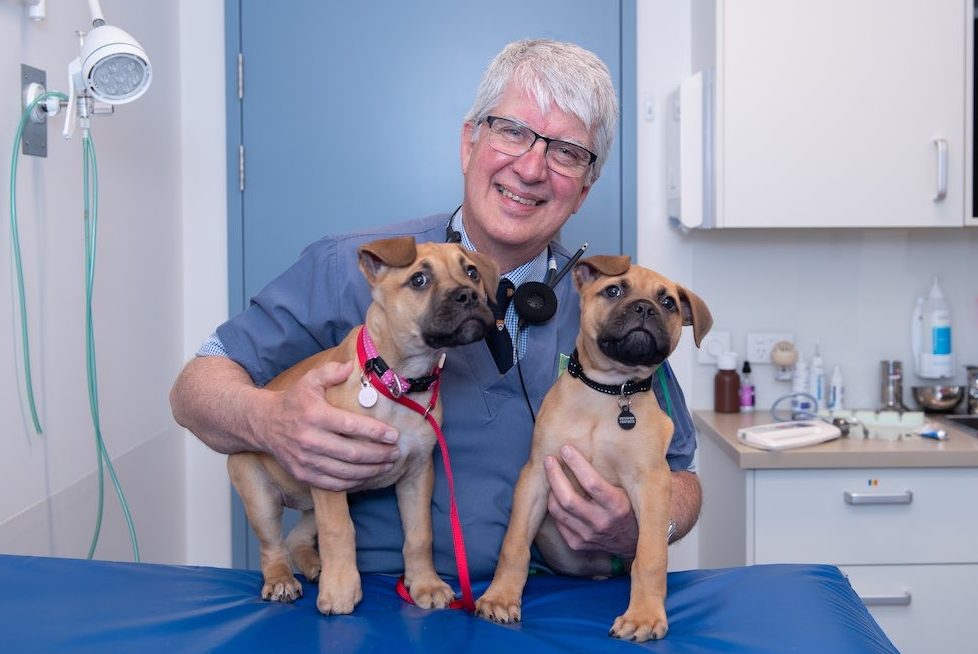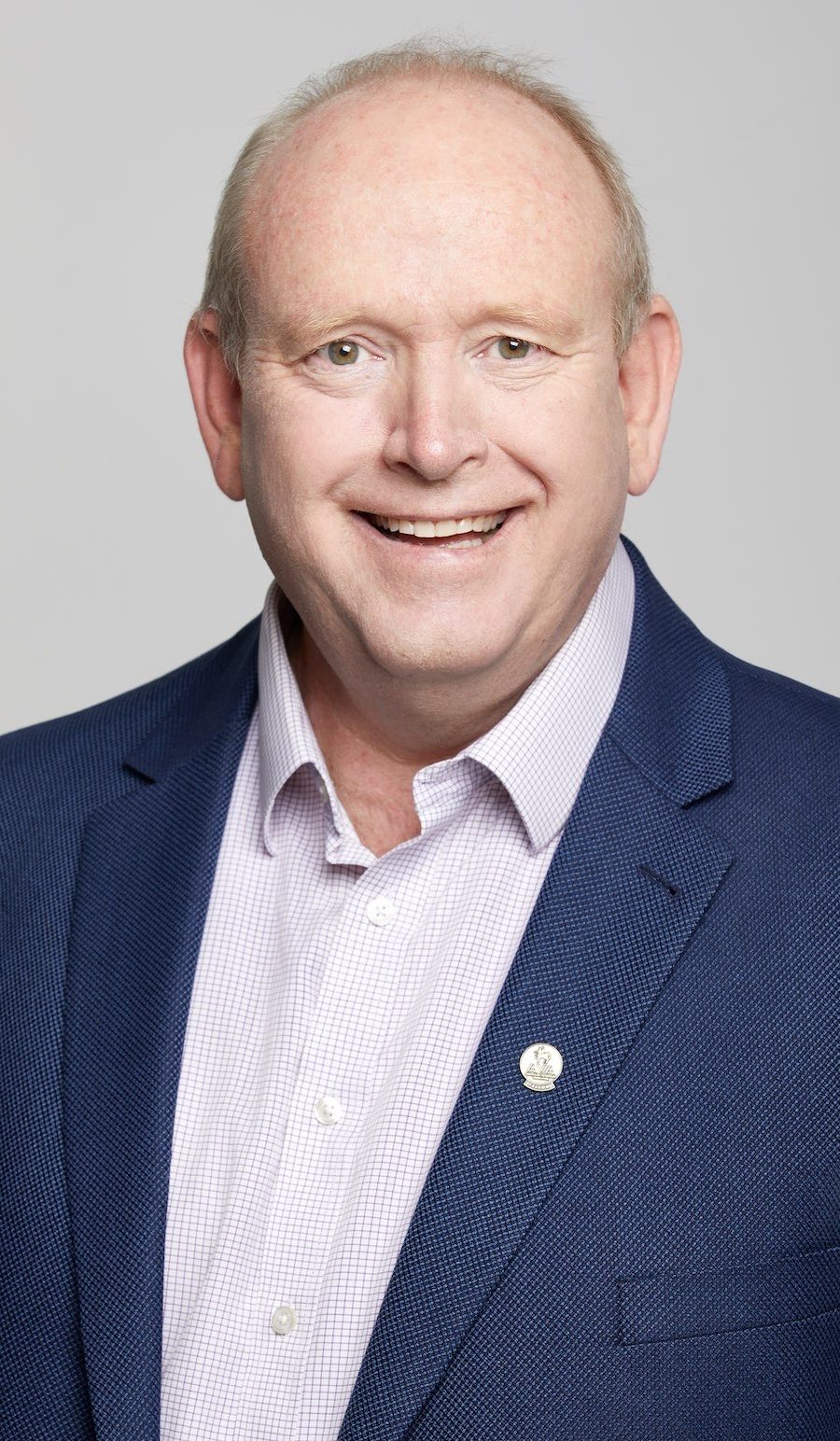
A vet in Australia dies of suicide every 12 weeks and the profession is asking for clients to help take the pressure off, reports DANIELLE NOHRA.
A GUNGAHLIN veterinary clinic was forced to send an email to its clients asking for collaboration during the pandemic after some of its staff experienced “negative behaviour”.
The practice, Gungahlin Veterinary Hospital, also pointed out the increase in suicide rates amongst veterinarians and veterinary staff.
Practice principal and veterinarian Dr Michael Hayward says there have been vets in the past that he’s known or known of in Canberra who have attempted to or have taken their own lives.
Michael, who is also the president of the Australian Veterinary Association’s ACT branch, says: “We sent out an email to our current clients reminding them to be polite and kind to all of our staff because the impact of having even unpleasant phone conversations can be really quite significant.”
Poor mental health and suicide amongst staff in veterinary practices is something that the association’s national president, Dr Warwick Vale, is focusing on.
The horse vet is in his second year as president and has sent the organisation on a pathway to have a reduction of suicide by 50 per cent within the next five years and an improvment in the mental health of a similar magnitude.
Based in WA, he says he’s been to four funerals in the last three years of colleagues that he knew well who had died by suicide.
As the president, he says he also has the task of writing to families, expressing condolences of fellow colleagues that have committed suicide.
“I don’t want to go to any more funerals or write any more letters to the family of young veterinarians that killed themselves. I’m doing that too frequently. I want that to stop,” he says.
“We lose a veterinarian by suicide on average every 12 weeks yet there’s only 14,000 of us.
“It’s embarrassing and an indictment on the profession that we have such a bad statistic. That’s four times the rate of suicide of any of the general community and we are often singled out as an employment group or a community of professionals that are of the highest risk of poor mental health and suicide.”

Warwick’s now on a mission to work with veterinary practices and the community to improve mental health in the workplace but it hasn’t been an easy task, especially since the start of the covid pandemic.
“We’re seeing reports of up to 30 per cent increases in service demands,” he says.
“When you couple that increase in demand with a shortage of veterinarians, we are seeing significant pressure on service delivery and that pressure is resulting in quite a bit of distress and anxiety.”
Warwick says some practices are trying to get around this increased demand by closing their books or closing to weekend work because “they just can’t catch up”.
While some people might think that this increase in demand is good for businesses, Warwick says it’s presenting some significant workplace challenges to a profession that’s already poorly paid, short staffed and overworked.
“It’s leading to a longer waiting time for the care of animals and we’re concerned for the welfare of those animals,” he says.
“That’s leading to customers being upset because they can’t access treatment for their pets in a timely manner and they get frustrated and angry.
“That leads to quite a bit of distress and a lack of happiness in workplaces and that’s putting pressure on the veterinary staff who are already working long hours.
“Often it’s 12-14 hours a day. It’s unrelenting and something’s got to give at some stage.”
In light of these issues, the association is asking for people to be considerate when they attend their veterinary practice.
“One of the big factors that’s been recognised recently is that aggressive, abusive, trolling behaviour that we’re seeing from clients all too frequently now plays a big role impacting on the mental health of veterinarians and veterinary staff,” he says.
“That customer abuse, that owner aggression towards staff within the veterinary clinic really is, in some cases, a huge factor in degrading the mental health and wellness of veterinarians, and becoming a factor in why some of these vets suicide.
“We don’t want animals without care and proper veterinary assessment but we do have pressures on us and we just want a bit of courtesy, a bit of consideration and a bit of understanding.”
While Warwick says it’s clear these workplace pressures are of the magnitude and the nature that are really affecting the mental health, there’s other factors involved with suicide.
“It’s a very complicated thing that affects people and their mental health,” he says.
“It’s not just usually one triggering factor that ends up in a suicide but the research is pretty clear, what we’re seeing in reality is that workplace environment, workplace stress plays a big part in degrading vetinarians mental health, mental wellness, to the point where some of them commit suicide.
“We just can’t go on any longer having the number of veterinarians unwell and as badly affected by their jobs to the point where they are committing suicide.”
To tackle these issues, the association runs training courses in mental first aid and has an aspirational goal of getting at least one or two staff members in each veterinary practice across Australia trained and certified in mental health first aid.
By introducing more mental first aid, changing business models and receiving community support, Warwick believes the workforce problem can be solved.
A lot of the issues that we have with not having enough vets at the moment is simply, not because there’s not enough vets qualified or who want to work as veterinarians, it’s just simply that they find working as a veterinarian for many different reasons, a lot of it around mental health and some of it around remuneration and long hours, they just can’t do it so they leave the profession.
“We need to change that business model and educate the community that if you want sustainable veterinary services in this country then we need to make those veterinary practices more sustainable,” he says.
“Those veterinary practice owners and workers are not driving Ferraris and Porsches and holidaying on private yachts every year like some people might think.
“They often are the lowest income earners in the population and they’re there not for the money. You don’t become a vet to make money, you become a vet because you enjoy the job and the challenge of treating animals and the joy of treating animals.”
Who can be trusted?
In a world of spin and confusion, there’s never been a more important time to support independent journalism in Canberra.
If you trust our work online and want to enforce the power of independent voices, I invite you to make a small contribution.
Every dollar of support is invested back into our journalism to help keep citynews.com.au strong and free.
Thank you,
Ian Meikle, editor





Leave a Reply